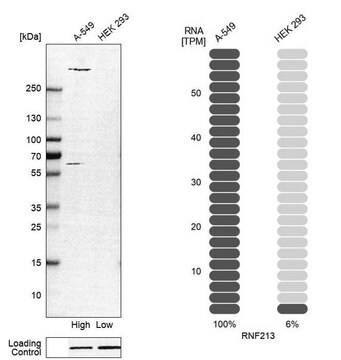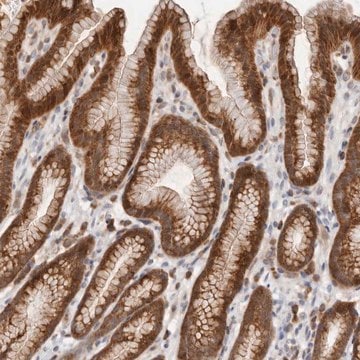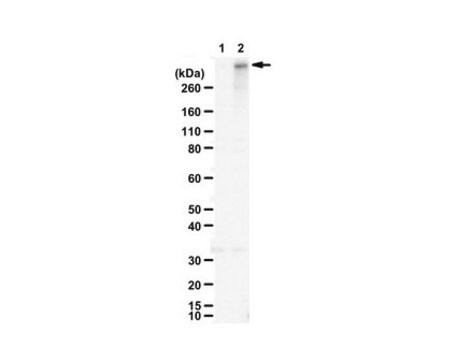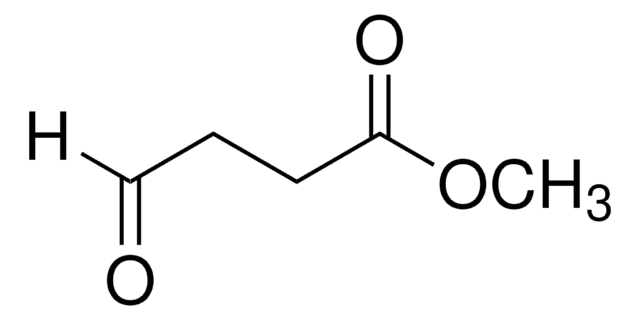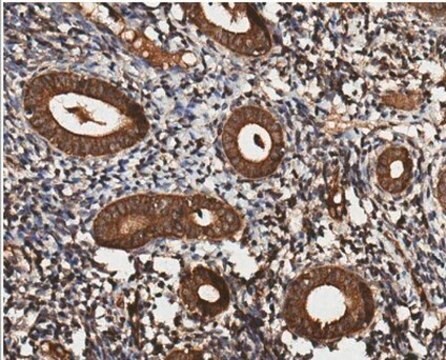ABN1474
Anti-RNF213
from rabbit, purified by affinity chromatography
Sinónimos:
E3 ubiquitin-protein ligase RNF213, EC:2.3.2.27, ALK lymphoma oligomerization partner on chromosome 17, Mysterin, RING finger protein 213, RING-type E3 ubiquitin transferase RNF213
About This Item
Productos recomendados
biological source
rabbit
antibody form
affinity isolated antibody
antibody product type
primary antibodies
clone
polyclonal
purified by
affinity chromatography
species reactivity
human
packaging
antibody small pack of 25 μg
technique(s)
immunohistochemistry: suitable (paraffin)
western blot: suitable
isotype
IgG
NCBI accession no.
UniProt accession no.
target post-translational modification
unmodified
Gene Information
human ... RNF213(57674)
General description
Specificity
Immunogen
Application
Western Blotting Analysis: 2 µg/mL from a representative lot detected RNF213 in 10 µg of HEK293 cells transfected with 3XFLAG RNF213 WT.
Neuroscience
Quality
Western Blotting Analysis: 2 µg/mL of this antibody detected RNF213 in 10 µg of HUVEC lysate.
Target description
Physical form
Storage and Stability
Other Notes
Disclaimer
¿No encuentra el producto adecuado?
Pruebe nuestro Herramienta de selección de productos.
Certificados de análisis (COA)
Busque Certificados de análisis (COA) introduciendo el número de lote del producto. Los números de lote se encuentran en la etiqueta del producto después de las palabras «Lot» o «Batch»
¿Ya tiene este producto?
Encuentre la documentación para los productos que ha comprado recientemente en la Biblioteca de documentos.
Nuestro equipo de científicos tiene experiencia en todas las áreas de investigación: Ciencias de la vida, Ciencia de los materiales, Síntesis química, Cromatografía, Analítica y muchas otras.
Póngase en contacto con el Servicio técnico